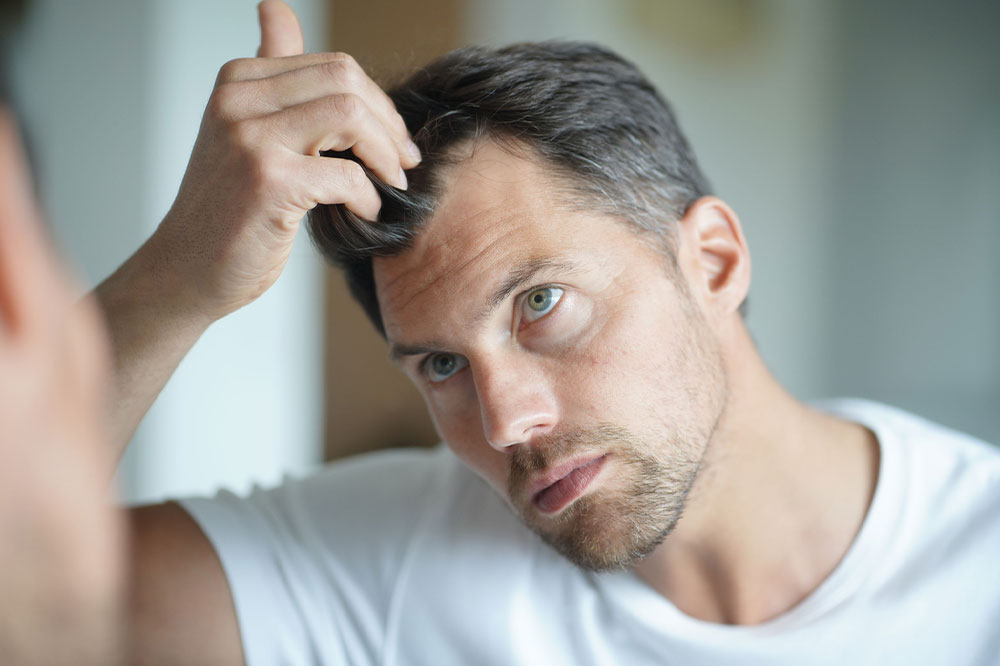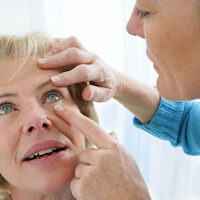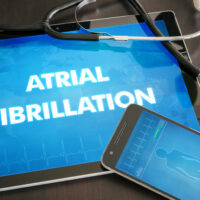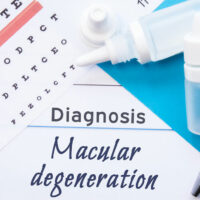6 Health Conditions That Trigger Severe Hair Loss

Are you dealing with hair loss that seems to be increasing no matter how much effort you put into caring for it? If yes, you are not alone. Unfortunately, many health conditions can cause severe hair loss disorders, such as alopecia areata or telogen effluvium. Some health conditions linked to severe hair loss are discussed below. Keep reading to learn how these conditions affect the quality and quantity of your precious hair with time.
Health conditions that trigger severe hair loss
Polycystic ovary syndrome (PCOS)
Polycystic ovary syndrome (PCOS) is a health condition that affects an estimated 5-10% of women of reproductive age. It is characterized by hormonal imbalances as well as the presence of cysts on the ovaries. While most people with PCOS are aware of the more common health issues such as infertility, body mass gain, and acne, many are unaware of its potential to trigger severe hair loss.
In women with PCOS, increased testosterone levels promote excessive hair growth on the face and body while inhibiting the health of existing scalp hair. This hormonal imbalance places more strain on the hair follicles, making them unable to produce healthy new hair as quickly as usual. With time, this effect can make it difficult for these follicles to sustain hair health and trigger alopecia or severe hair loss.
Lupus
Lupus is a temporary or long-term autoimmune disease. Its symptoms may include fever, fatigue, swelling, joint pain, rashes throughout the body, and sometimes, hair loss. In this condition, your body’s immune system and antibodies attack your healthy cells, tissues, and organs, causing inflammation. This inflammation can trigger temporary or permanent hair loss in lupus patients.
Hair health may also be harmed by treatments used to manage lupus symptoms, leading to thinning or bald patches on the scalp. In the most severe cases of lupus-induced hair loss, individuals experience a complete lack of scalp hair, known as alopecia areata.
Anemia
Anemia is a health condition that can cause severe hair loss due to its effects on the production of essential nutrients. It occurs when insufficient red blood cells are in the body, preventing oxygen from getting delivered to the cells. Without enough oxygen and nutrients, the health of hair follicles can start to deteriorate, leading to thinning. It leads to weakened and brittle hair, along with intense shedding. Treating underlying health conditions such as anemia can help correct the dysfunctional cycle and prevent further baldness.
Thyroid problems
While healthy hair is essential to self-esteem, thyroid problems can significantly impact hair health. Thyroid issues occur when the body produces an abnormal amount of hormones, typically too much or too little. These hormone imbalances often lead to hair loss, as the thyroid hormones (thyroxine and triiodothyronine) regulate hair growth.
Hair loss resulting from thyroid problems is typically severe and prolonged. It may cause patches to appear all over the head and partial baldness. Fortunately, alopecia areata treatments can help restore hormonal balance, improving hair quality.
Stress
Stress can affect a person’s health in many ways, including causing severe hair loss. Feeling unhappy or emotionally unbalanced for long periods leads to hormonal disruption and has profound health implications, including hair loss. Severe stress can lead to excess chest tightness, racing heart, and shallow breathing. Moreover, it may eventually lead to telogen effluvium, which causes sudden excessive shedding of the scalp’s hair.
When experiencing excessive stress levels, the body produces a hormone called cortisol. This hormone can interfere with the production and growth of healthy hair follicles, resulting in alopecia or baldness. Furthermore, people may become less mindful of health and well-being when stressed. For example, they might neglect proper nutrition, hydration, and sleep, which are essential for healthy hair regrowth.
Stress-induced hair loss can be temporary but needs to be taken seriously nonetheless. However, consistent periods of severe stress should always be discussed with healthcare professionals to regain healthy hair growth.
Nutrient deficiencies
When you do not manage your health optimally, nutrient deficiencies can occur and eventually trigger severe hair loss. The most common cause for this kind of hair loss is a deficiency in iron, zinc, or vitamins such as B12 and D. Without enough of these vital nutrients in the nutritional plan, hair follicles will not have enough nourishment to sustain a normal cycle of new hair growing in place of older ones that naturally shed.
Simple ways to manage hair loss
Although alopecia areata treatments exist to manage hair loss, here are a few simple ways to maintain optimal hair health.
- Maintain a healthy nutritional regime – Following a meal plan rich in vitamins and minerals, particularly those that support hair health, such as zinc and iron, can help manage hair loss.
- Avoid tight hairstyles – Tying hair in braids, buns, and ponytails for long durations can cause hair breakage and damage.
- Be gentle when brushing your hair – Rough towel-drying, brushing, and styling can cause hair breakage, leading to hair loss. Be gentle while brushing or styling your hair; use wide-toothed combs instead of brushes.
- Use a gentle shampoo – Use a mild, sulfate-free shampoo that doesn’t strip your hair of its natural oils, often leading to hair loss.
- Avoid excessive heat – Avoid using excessive heat on your hair, such as blow dryers and flat irons, as they can lead to hair loss. Alternatively, use a heat protectant when heat-styling hair.
- Massage your scalp – Massaging your scalp can increase blood flow to your hair follicles and stimulate growth. Use your fingers (not nails) to gently massage your scalp for a few minutes daily.
From malnourishment to hormone imbalances, several health conditions can cause severe hair loss in people. Fortunately, once the underlying condition is treated, many sufferers can observe good hair regrowth. Therefore, it is important to recognize the warning signs of a health condition causing extreme hair loss and seek the advice of a healthcare professional immediately. Many treatments exist today to help those dealing with this issue feel more comfortable with their hair. With proper diagnosis, treatment, lifestyle changes, and care from your doctor, you can return your luscious locks for good!





